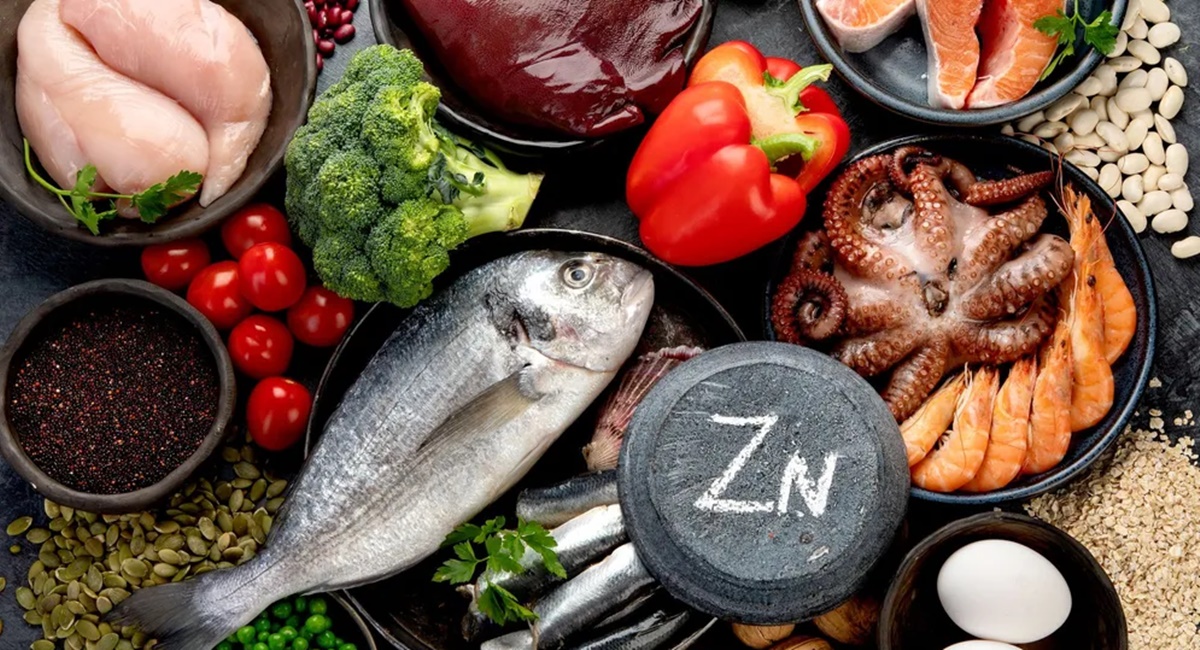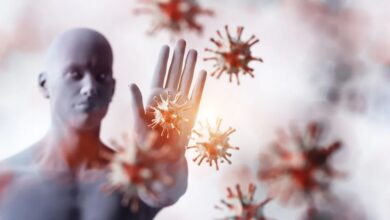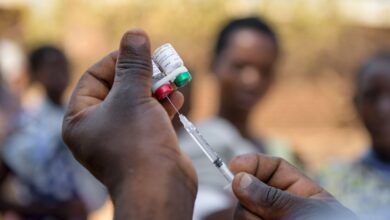These foods are good suppliers of zinc
Zinc is important for a strong immune system and supports the metabolism. Which foods contain the mineral and the consequences of a deficiency.

Around two to four grams of the mineral are distributed in the human body, in bones, skin and hair, but also in the liver, muscles and kidneys.
Since zinc cannot be produced by the body itself, it must be supplied through the diet. You can read here which foods are particularly high in zinc and the consequences of a deficiency.
What is zinc and why is it so important?
Zinc is an important mineral and is one of the so-called essential trace elements. This means that it is essential for human life, but cannot be produced and stored by the body itself. For this reason, zinc must be supplied “from outside” through food.
Zinc is a component of numerous enzymes and proteins and is therefore involved in a large number of processes in the body:
cell growth and cell division
wound healing
various metabolic processes
Support of the immune system
development of the child during pregnancy
Blood Sugar Regulation
Support in the formation of the red blood pigment hemoglobin
sperm formation
Transport of oxygen and carbon dioxide in the blood
hormone formation
Zinc is part of the body’s defense system and is also said to have a healing effect on colds. However, this is not scientifically proven.
However, an overdose of the trace element can be harmful and lead to symptoms of poisoning with nausea, vomiting, circulatory problems and headaches. This can happen, for example, if zinc has been consumed in excess as a dietary supplement. Oversupply is hardly possible with a normal, balanced diet.
How much zinc does a person need?
The daily zinc requirement can usually be met through a balanced diet. The amount required depends on age and gender. According to the German Society for Nutrition (DGE), the recommended zinc intake for women is 7 milligrams (mg) per day. This value is reached, for example, when eating the following foods: Two slices of brown bread, two slices of mountain cheese (60 grams), 25 grams of almonds, a glass of cow’s milk (200 ml) or 50 grams of muesli.
Men, on the other hand, should consume at least 10 mg. For example, this equates to 150 grams of pork, 200 grams of broccoli, 6 tablespoons of wild rice or 100 grams of chickpea hummus.
Certain groups of people, such as children, the elderly, pregnant and breastfeeding women, but also vegans, have an increased risk of zinc deficiency. In order to prevent this, you should therefore pay particular attention to ensuring that your body is getting enough zinc in your diet.
Which foods are good suppliers of zinc?
The human body can process zinc from animal foods better than zinc from plants. Fish even better than meat. Zinc from plant-based foods also contains lower amounts of zinc and more often substances that make the mineral more difficult to absorb. This includes, for example, phytate, a secondary plant substance in whole grain cereals and legumes.
According to the DGE, however, the consumption of wholemeal bread and legumes cannot lead to a zinc deficiency. Although the phytate content is higher than in white bread, the zinc content is also significantly higher. If you still want to be on the safe side, you can also consume animal protein. It increases zinc absorption in the body.
Foods high in zinc are:
liver and meat
cheese, milk and eggs
legumes, kernels and seeds
oatmeal
whole grain products
nuts and almonds
Wheat or rye sprouts
Oysters, shellfish and crustaceans
How does a zinc deficiency become noticeable?
With a balanced diet, a zinc deficiency usually occurs only rarely. If, on the other hand, the diet is unbalanced or there are organic causes such as a chronic inflammatory bowel disease such as ulcerative colitis or Crohn’s disease, there may be an undersupply. An unbalanced diet, chronic diarrhea or a vegan diet can also lead to a lack of minerals in the body.
Heavy alcohol consumption or taking dehydrating medication (diuretics) can also lead to increased zinc being excreted in the urine and the body being undersupplied.
Possible consequences of a zinc deficiency are:
increased susceptibility to infection
Diarrhea
hair loss
poor wound healing
skin inflammation
dry skin
weakening of the immune system
worsened sense of taste and smell
nail changes
growth retardation in children
However, these symptoms can also have many other causes. They should therefore always be checked out by a doctor.
How does the doctor determine a zinc deficiency?
A zinc deficiency is not so easy to prove. Blood and urine tests are available, but the results are not always reliable. Especially if there is only a slight undersupply. It is therefore important in the diagnosis to always include the patient’s eating habits and physical symptoms in addition to the laboratory values.
A hair mineral analysis can also be revealing. Because a lot of zinc accumulates in the hair. If the value is too low, this can also be an indication of a zinc deficiency in the body.
In order to compensate for the deficit, in addition to a change in diet and abstaining from alcohol, taking zinc supplements can also be useful. However, these should not be taken on your own and without consulting a doctor. Otherwise, an overdose can quickly occur.


